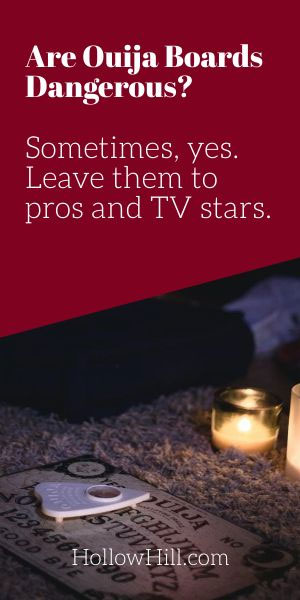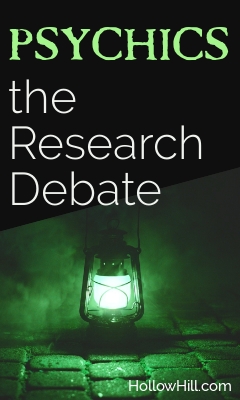 Should psychics learn a site’s history ahead of time, or not? That seems to be an issue.
Should psychics learn a site’s history ahead of time, or not? That seems to be an issue.
I think it’s important to know the history—and admit to it—but I may be different since I’ve been aware of my psychic abilities since childhood.
Sure, it’s impressive when you think that a psychic couldn’t have known what he or she “senses,”… but are you sure that the psychic wasn’t fed the information ahead of time?
This question was raised when a Most Haunted UK staff member set a trap for another cast member. In my opinion, the issue wasn’t as simple – or as damning – as it may have seemed in the media.
And, to be honest, I thought it was poor form to try to embarrass the psychic in front of a global audience.
There were many other ways to explain what happened in the Most Haunted case, and the choices weren’t binary. That is, I don’t think the only two explanations were “fraud” (on one side) and “envious researcher” (on the other).
Perhaps I’m biased. My instincts always suggested that Most Haunted (UK) featured genuine research. Even after the supposed exposé, I still think the show was authentic, within the scope of a show edited for entertainment purposes. And frankly, I like Yvette Fielding’s willingness to be honest about what she experiences.
(In this article, except for specific TV references, I’m talking about psychics in general. If it seems that I’m describing someone someone in particular, I’m not.)
Here’s how I see it, as a psychic… with apologies to those who may be offended.
Can’t you tell the difference?
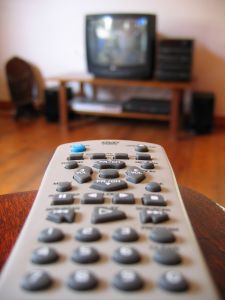 Let’s discuss a similar topic. If I see a travel show on TV and later visit that location, I may feel a mild sensation of deja vu.
Let’s discuss a similar topic. If I see a travel show on TV and later visit that location, I may feel a mild sensation of deja vu.
However, I never confuse my memories of the show with what I’m experiencing during my visit. For me, first-person experiences are totally different from what I’ve learned from prior sources.
During my visit, I’ll say things such as, “Oh, this isn’t anything like it looked on TV.” Or, “This is the exact same angle they showed in the TV coverage.”
Likewise, I don’t mix up psychic messages and my historical studies.
If anything, I’ll say, “Oh, the history books missed something important.” Or, “This gives me wonderful insights into the history I’ve studied.”
If someone is a genuine and experienced psychic, I’m not sure why they’d confuse their sources. But, as I said, I’ve been considered psychic since my earliest childhood. I’ve never doubted my “sixth sense,” thanks to a supportive mother who quickly recognized that I wasn’t making it up.
For me, the distinction between things I learn internally (through psychic channels) and those provided to me through normal research… those two are completely different. They’re like apples and oranges.
When a psychic gets it “wrong”
This subject becomes important when a psychic seems to make a huge mistake.
 For example, if the psychic declares that an incident took place at one location… and it actually took place on the other side of town.
For example, if the psychic declares that an incident took place at one location… and it actually took place on the other side of town.
Or, if the psychic uses a name that’s fictional, or later revealed to be part of an earlier hoax.
That can look pretty bad.
However, like the unfortunate Most Haunted UK incident around 2005, it’s important to examine every side of the problem.
In my opinion, it’s simplest to do at least some research into the site’s history. This will help you get a context and understand what’s known and what’s controversial about that history.
Otherwise, if the psychic claims no prior knowledge of the area’s history, how can he or she answer questions of credibility? If he or she has never heard or seen anything about the history – difficult, at most locations, as there are always some visual clues – the psychic’s replies can sound made-up, or even silly.
If someone is a fraud – or faking it for an audience – there’s no place to hide.
On the other hand, if the psychic is up-front about his or her earlier studies (or coaching), the possible responses could be:
- “I may be sensing energy from someone who felt burdened by what happened somewhere else. He or she brought that energy back to this location.”
- “The energy from that event across town was so intense, it’s affected the entire area.”
- “The history books got it wrong, or they overlooked what also happened here. With my additional information, maybe we can clear this up.”
- Or – if the psychic is honest – “My accuracy isn’t 100%. This is one of those times when I misinterpreted the energy.”
However, those responses are most credible if the psychic has already established his or her integrity by honestly admitting prior study or coaching if there was any.
When a psychic seems “too right”
Psychics have different talents. Some provide great readings. Others are excellent healers. Some – like me – seem to sense past events and their emotional content. The variations are endless.
Psychics also have different skill levels. Those with greater accuracy may have a stronger natural gift or more practice.
However, when a psychic medium gets it “too right” at a location, it’s fair to raise an eyebrow.
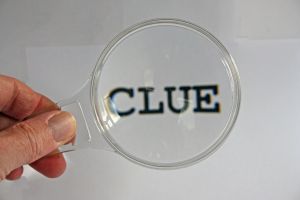 Critical thinking skills are important, even when – or especially when – the psychic is charming and likable.
Critical thinking skills are important, even when – or especially when – the psychic is charming and likable.
When we like someone, we want to believe that they’re honest. That bias may reduce our critical thinking skills.
Look at how the psychic conducts him or herself. Psychics talk differently than people who are faking it, or fooling themselves into thinking that they’re connecting with the other side.
We often look different from our usual appearance, as well. The trance state may be evident.
Of course, the waters become murky when the psychic speaks mostly from a genuine spiritual connection… but “supplements” that with information that he or she was given ahead of time.
That’s very clever, and it can be difficult to detect that mix. Even other psychics can be fooled. (It’s happened to me, to my chagrin.)
If the psychic rattles off items that could be memorized – exact dates, for example – there’s even more reason to question what’s going on.
A quick online search will reveal how readily the psychic – or his or her coach – could have found that information and memorized it ahead of time.
(Of course, doubt will be removed if it later turns out that the date or other information is incorrect and has been widely misreported.)
Why raise this issue now?
I don’t want to sound like a raving skeptic. As a psychic and paranormal investigator, I’m very conscious of our vulnerabilities. It’s hard enough to prove to our detractors that we’re detecting or contacting ghostly energy.
Unfortunately, with the popularity – and income potential – of ghost-related events, I’m seeing more (and better) frauds enter this field. That hurts all of us.
To put it bluntly, if you need a demonologist, who would you trust: Someone like John Zaffis, who’s been in this field for years and provided help free of charge?
Or, would you hire someone with a great team tee-shirt who’s been in the field for a couple of months (no matter what his or her claims) and is clearly focused on fame, fortune, or both?
The telepathy question
Evidence supporting telepathy is far stronger than evidence for ghosts and hauntings.
Many psychics are telepathic. We can’t rely on that ability, but it needs to be acknowledged in discussions like this.
There is always the possibility that the psychic is actually reading the mind of someone in the group, such as a historian or someone who read about the site before the event.
If the psychic has a “silent coach” in the audience – someone who is very aware of his or her importance to the psychic – that coach may have studied the site’s history in detail.
The problem is, as psychics, the information either comes from an external source (a ghost, spirit, or through ESP) or an internal source (our own memories or studies).
It can be difficult to discern more than that. For many psychics, a ghost is as “alive” as the historian giving the tour.
Can preparations help?
I believe that historical research can prevent that problem, though it doesn’t entirely eliminate it.
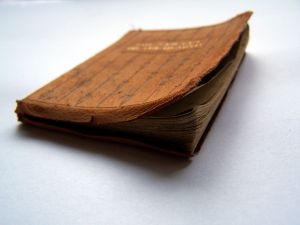 When I have a frame of reference, such as my own historical research, I know how and where that information is coming from. This is in sharp contrast with information I receive from external sources, such as residual energy impressions or a ghostly encounter.
When I have a frame of reference, such as my own historical research, I know how and where that information is coming from. This is in sharp contrast with information I receive from external sources, such as residual energy impressions or a ghostly encounter.
If something is a “shade of gray” (no pun intended) – meaning different in character than prior knowledge but different from intense residual energy – I’ll suspect that I’m picking it up telepathically from someone in the audience.
Personally, I’m more likely to lean in a skeptical direction… but that’s my personal choice. Others may differ.
It’s all about integrity and credibility
In lieu of clear, scientific evidence, our most important credential in this field is integrity.
Without that, it’s just a show… it’s entertainment.
There’s nothing wrong with putting on a good show. I enjoy melodramatic “ghost tours” as much as anyone else, but they’re so over-the-top that I never confuse them with an actual ghost encounter.
Credibility comes into question when a psychic knows a site’s history but pretends that he or she doesn’t.
All it takes is one glaring mistake, and the psychic’s reputation is in tatters, and that damage ripples into the community.
In most (but not all) cases, I do know the site’s history ahead of time. When I don’t, I tell people.
That’s not just a point of credibility. It also explains why my impressions may not be as clear or as rapid when I don’t know the history. I may need time to scan my impressions and fit them into the context of a time period or event.
I’m a better psychic when I already know the time period to focus on, or the history of the location.
(It’s like someone saying, “Oh, look at that car!” It’s always easier and faster to spot the car if you know its color, vintage, or at least what makes it interesting. In a similar manner, I more readily connect with ghostly energy when I know the time period or history that it resonates with.)
While I appreciate that some psychics feel that not knowing history gives them more credibility, I counter that missing knowledge can be a liability. At the very least, the investigation can take far longer.
I want to make use of every tool within my reach, to provide in-depth information at every haunted site.
Besides impressing the audience and “proving” myself as a psychic… is there some reason why I shouldn’t learn a site’s history before an investigation?
Recommended reading:
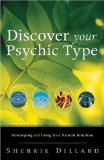 Discover Your Psychic Type
Discover Your Psychic Type
 What are your thoughts on how much a psychic should know ahead of time? Share your opinions in the comment form, below.
What are your thoughts on how much a psychic should know ahead of time? Share your opinions in the comment form, below.
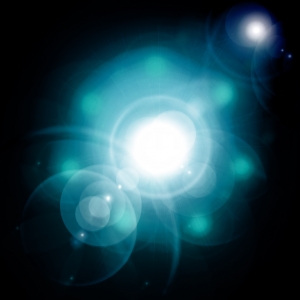

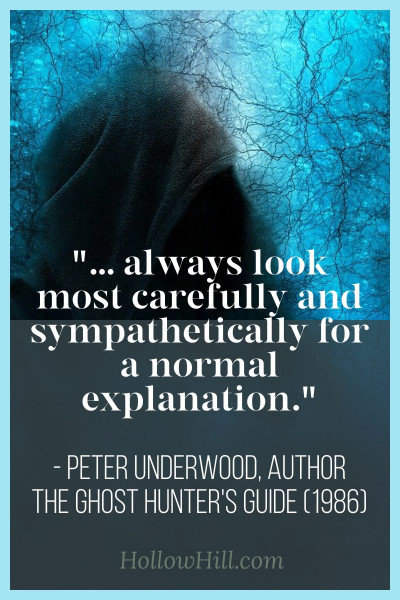

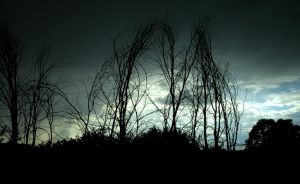 If something odd is going on and you feel in great danger, get out of that house.
If something odd is going on and you feel in great danger, get out of that house.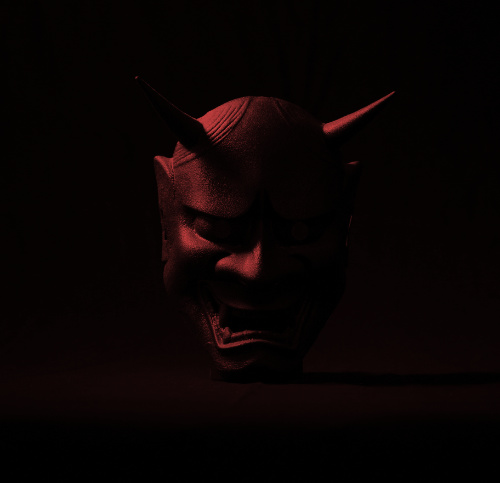
 Should psychics learn a site’s history ahead of time, or not? That seems to be an issue.
Should psychics learn a site’s history ahead of time, or not? That seems to be an issue. Let’s discuss a similar topic. If I see a travel show on TV and later visit that location, I may feel a mild sensation of deja vu.
Let’s discuss a similar topic. If I see a travel show on TV and later visit that location, I may feel a mild sensation of deja vu. For example, if the psychic declares that an incident took place at one location… and it actually took place on the other side of town.
For example, if the psychic declares that an incident took place at one location… and it actually took place on the other side of town. Critical thinking skills are important, even when – or especially when – the psychic is charming and likable.
Critical thinking skills are important, even when – or especially when – the psychic is charming and likable. When I have a frame of reference, such as my own historical research, I know how and where that information is coming from. This is in sharp contrast with information I receive from external sources, such as residual energy impressions or a ghostly encounter.
When I have a frame of reference, such as my own historical research, I know how and where that information is coming from. This is in sharp contrast with information I receive from external sources, such as residual energy impressions or a ghostly encounter.
 What are your thoughts on how much a psychic should know ahead of time? Share your opinions in the comment form, below.
What are your thoughts on how much a psychic should know ahead of time? Share your opinions in the comment form, below.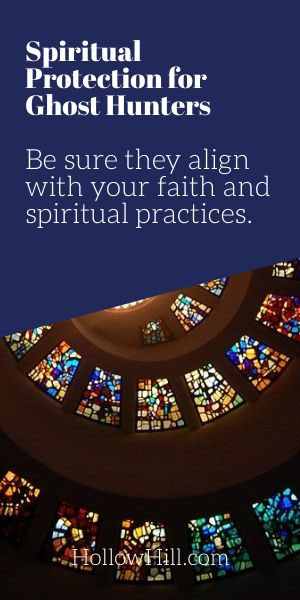 After all, we usually don’t know how dangerous a site is until we investigate it.
After all, we usually don’t know how dangerous a site is until we investigate it.
 From what I’ve learned about demonic activity, I would use Holy Water only in situations where there is absolutely, positively no likelihood of malicious and demonic energy.
From what I’ve learned about demonic activity, I would use Holy Water only in situations where there is absolutely, positively no likelihood of malicious and demonic energy.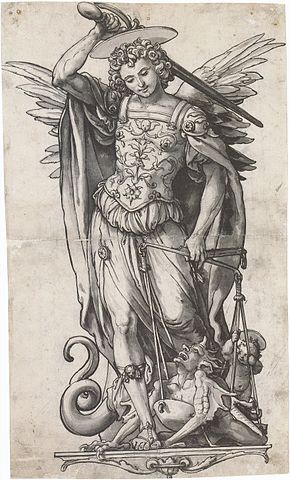
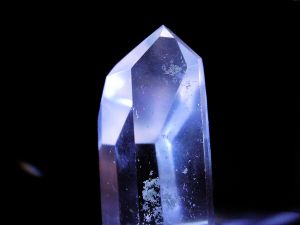 Here’s what I carry: I have a couple of crystals in my wallet. One is a
Here’s what I carry: I have a couple of crystals in my wallet. One is a 